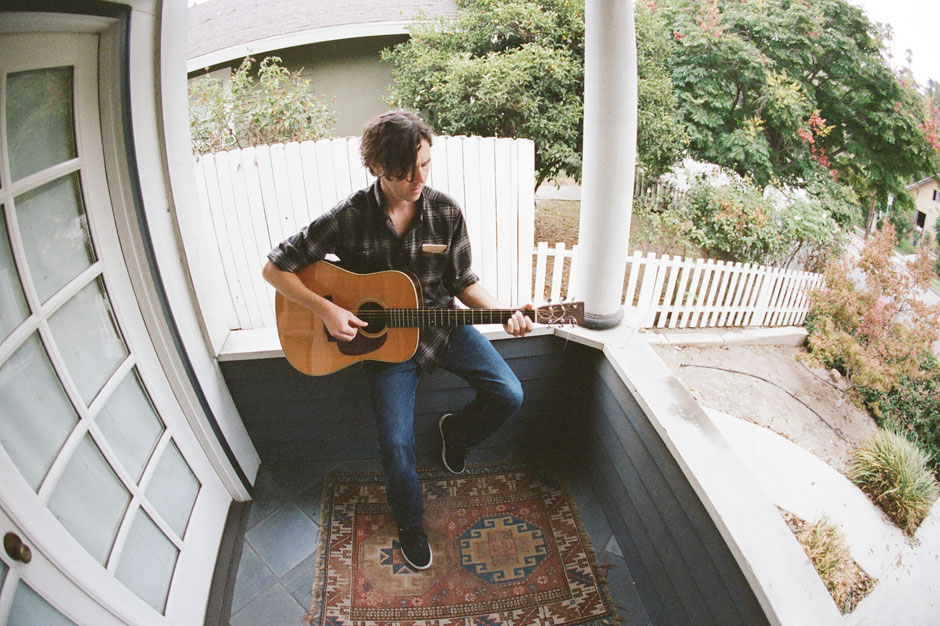Release Date: October 15, 2013
Label: Domino
Big Wheel and Others has an awful lot of songs. Big whoop. Cass McCombs released an awful lot of music in 2011, too: two albums’ worth. When Elvis Costello pulled that same trick in 1986, the Nick Lowe-produced Attractions record Blood and Chocolate came second, as if to remind anyone wary of the proto-roots rock King of America that he could still write cantankerous stuff if you put a quarter and a dime in the machine. But McCombs’ sensibilities are closer to Conor Oberst’s, who released two Bright Eyes albums in 2005: Commensurate with their affinities for the knottier climes of the American singer-songwriter tradition is a penchant for man-on-the-mountain philosophizin’.
In 1975, McCombs’ seventh album likely would have gotten the gatefold treatment, not to mention the praised-to-the-skies-by-Jann-Wenner treatment. Given the probability that in the digital age consumers will treat recordings of any significant length as buffet lines, it’s impressive that a label would release Big Wheel and Others (two discs, 22 tracks, 65 minutes) at all; as compendia of an artist’s strengths, tics, tricks, and limits, a double album can still serve its purpose in 2013. But this one is immersive in the old-fashioned way: Two versions of marvelous single “Brighter!,” the second by the late Karen Black; multiple two-minute, mid-tempo throwaways; eight minutes of pseudo-mystic cowpunk. Each song boasts a memorable harmonic shift or guitar filigree or hook, but successive listens reveal an overstuffed package whose melodic involutions aren’t complex and/or simple enough to sustain more than an hour’s worth of music.
To understand that Big Wheel synthesizes Western tropes does not require a lyric sheet. The first third sleepwalks into a concept of sorts: A love-damaged hombre with a head full of Peckinpah’s The Ballad of Cable Hogue cruises the desert in a shitty car (the title track), digging the taste of diesel and the look of John Deere tractors, in flight from the married woman (“Morning Star”) who broke his heart (“Angel Blood”). He gets advice from a prophetess set to a blues progression and obtrusive sax (“The Burning of the Temple, 2012”); he essays a Nick Cave-style murder ballad (“Joe Murder”). From there, things get woolly, like the lone rocker, in which McCombs says Jesus is his boy, Mary is his pal, and, per the title, “Satan Is My Toy.”
As a producer, McCombs has an ear for players who complement a lead voice that’s laconic and yearning. The star-behind-the-star is drummer Joe Russo: He gets flippy-floppy in pursuit of McCombs’ erratically timed whoa-oh-ohs on “There Can Only Be One,” and answers his bandleader’s descending guitar phrases with fills on “Home on the Range.” Pedal steel player Dan Iead earns a Best Supporting Actor nod for “Everything Has to Be Just-So” for his grace notes, and for showing up a guy who talk-sings, “They say the brown man is a filthy Indian / They say an Indian doesn’t come from India” as tom-toms rumble over eight ponderous minutes. Imagine a Side Two offering from Neil Young’s On the Beach appearing in an early-’90s Gus Van Sant picture.
But Karen Black’s wide-voiced reinterpretation of “Brighter!” is a highlight for another reason. To cast a New Hollywood legend (who died just two months ago) as the embodiment of our swain’s kind of femininity underscores the project’s backwards cast, although the glee with which she dismisses Sid Vicious and rhymes “Cass” and “ass” shows McCombs can squeeze the air out of the pomp balloon. It’s a strategy (and a tune) preferable, at any rate, to “It Means a Lot to Know You Care,” in which he owns up to owning Manassas records.
Gauche and often a test of patience, Big Wheel and Others won’t be the breakthrough that McCombs desires, but not because the culture has shifted from the forbearance required of this double album’s zonked-out sensibility and indifference to pace. Although McCombs would balk at the comparison, Conor Oberst’s eponymous 2008 solo album realized the Plumed Serpent-era D.H. Lawrence-meets-Crazy-Horse vibe far more effectively, and was the length of an episode of a good cable drama (minus commercials). But grant McCombs this: He’s spookier, and loves his guitar. When he unites his avocation and vocation, he’s capable of a lament as devastated as “County Line” from 2011’s Wit’s End. Big Wheel has “Dealing,” a dulcet little tune with a two-note chorus melody and the pungent couplet, “Dealing is better than kneeling,” buried in the prettiness like prime Gilberto Gil. You want spooky, melodic, and guitar-happy? Now there’s an influence to build on.





